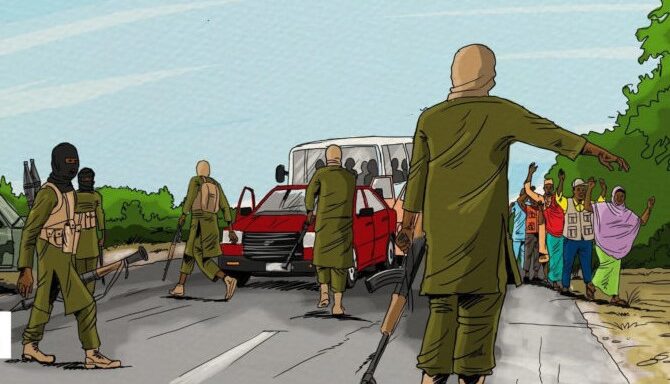THE United States Department of State has accused the Nigerian government of failing to adequately protect victims of Boko Haram insurgency and human trafficking, despite some progress in recent years.
In its 2025 Trafficking in Persons (TIP) Report, published on Thursday and reviewed by News Point Nigeria, the US said Nigeria has not met the minimum global standards required in key areas of combating human trafficking, keeping the country on the Tier 2 Watchlist, a ranking for countries making “significant efforts” but still falling short.
The report criticised Nigeria’s weak efforts in identifying and protecting vulnerable groups, including internally displaced persons (IDPs), women and children linked with non-state armed groups such as Boko Haram, as well as children forced into begging and domestic servitude.
It noted that due to insufficient screening, both the Federal and Borno State government failed to prevent victims from being re-traumatised, criminalised, or penalised for acts committed while they were trafficked.
In some disturbing cases, authorities were reported to have detained or returned women and girls to Boko Haram “husbands” and traffickers, further exposing them to exploitation.
The US report described corruption and official complicity as one of the biggest obstacles in Nigeria’s anti-trafficking fight. It revealed that some officials tasked with combating trafficking were themselves involved in crimes, leaking case files, or demanding bribes.
“Corruption and official complicity in trafficking crimes, including among designated officials with responsibilities to combat human trafficking, remained significant concerns, inhibiting law enforcement action and perpetuating impunity for trafficking crimes,” the report stated.
The judiciary also came under scrutiny, with local courts often mishandling trafficking cases due to a lack of standardised training, poor enforcement, and in some cases, misapplication of the law.
According to the report, observers documented cases where security officers sexually abused and exploited displaced persons, including children, in and around Maiduguri, the Borno State capital.
It stressed that women and girls liberated from non-state armed groups were too often treated as criminals rather than survivors deserving rehabilitation.
Despite the shortcomings, the report acknowledged Nigeria’s incremental progress under the Trafficking in Persons Law Enforcement and Administration Act (TIPLEAA).
In 2024 alone, Nigeria recorded 744 trafficking investigations, 71 prosecutions, and 49 convictions, more than double the convictions secured in 2023. Convictions carried sentences ranging between one and 15 years’ imprisonment.
The government also boosted victim protection funding, raising allocations from ₦50.8 million in 2024 to over ₦128 million in 2025, while working more closely with NGOs and scaling up public awareness campaigns.
However, the US insisted these gains were undermined by pervasive corruption, weak enforcement, and lack of accountability for complicit officials.
With these concerns, Nigeria remains on the Tier 2 Watchlist, meaning it risks a downgrade to Tier 3, the lowest ranking, if significant improvements are not made.
The report concluded by urging Nigeria to prioritise victim-centred approaches, strengthen accountability mechanisms, and ensure that those rescued from insurgents and traffickers are treated as victims rather than criminals.







